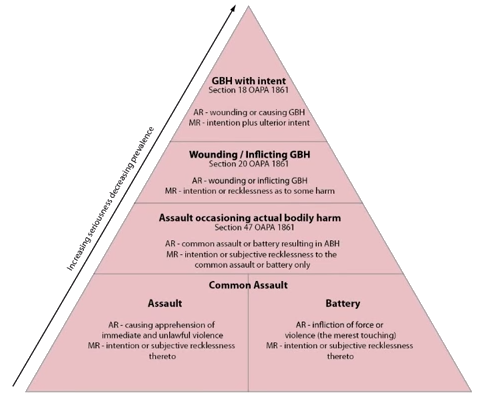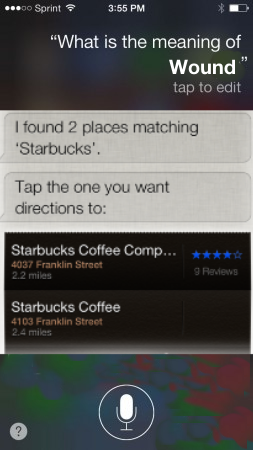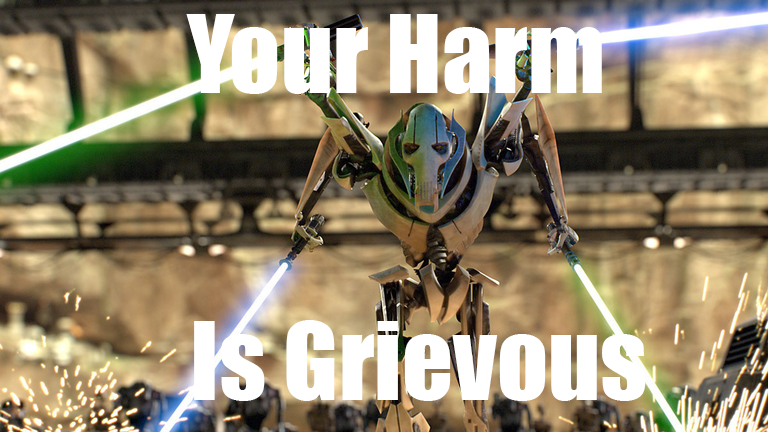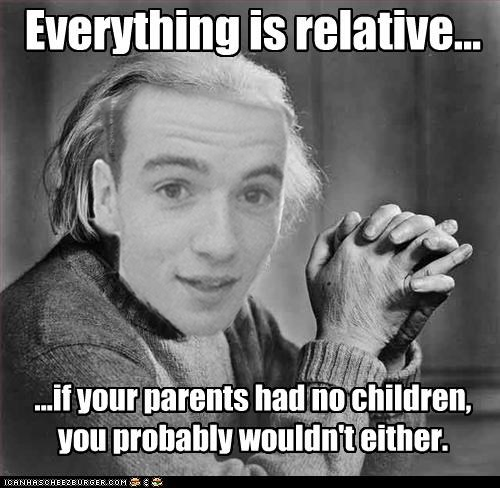Section 20 Offences Against the Person
Guest Starring: Section 18
Fazzino Studios Presentation
Shanara and Matt helped a bit too I guess
Imagine
If there was...
A Pyramid

But wait there's more!!!!!!

Actus Reus


JCC v Eisenhower

D shot V with an air gun. The pellet hit V near the eye, resulting in a bruise below the eyebrow and fluid filling the front of his eye.
Held: A wound is a break in the continuity of the whole skin; an internal rupturing of the blood vessels is not a wound.
Not Guilty of wounding
Lord A. Judge
Details
D shot V with an air gun. The pellet hit V near the eye, resulting in a bruise below the eyebrow and fluid filling the front of his eye.
Conclusion
A wound is a break in the continuity of the whole skin; an internal rupturing of the blood vessels is not a wound.
Not Guilty of wounding
Lord A. Judge
Lets get serious
Really serious
G
B
H


R v Brown and Stratton
"Another way of looking at it is how would you describe these injuries if you were the victim? Would you call them really serious, or would you say that they were not really serious?"
Lord A. Judge
R v Bollam

Details
The defendant was convicted of GBH under s.18 OAPA 1861 for injuries he inflicted on his partner's 17 month old daughter. The injuries consisted of various bruises and abrasions. He appealed against his conviction on the grounds that the judge should have directed the jury that in assessing whether the injuries were serious enough to amount to GBH they should not take into account the age of the victim.
Conclusion
The jury are entitled to take into account the particular characteristics of the victim. However the judge failed to direct the jury that they must be sure that the injuries came from the one assault. The expert medical witness suggested some of the injuries were older than others. The defendant's conviction for GBH was therefore quashed and substituted with ABH.
Appeal
"We are unable to accept that proposition. To use this case as an example, these injuries on a 6 foot adult in the fullness of health would be less serious than on, for instance, an elderly or unwell person, on someone who was physically or psychiatrically vulnerable or, as here, on a very young child. In deciding whether injuries are grievous, an assessment has to be made of, amongst other things, the effect of the harm on the particular individual. We have no doubt that in determining the gravity of these injuries, it was necessary to consider them in their real context."
Fulford J
R v Burstow

Detales
The defendant had a brief relationship with a woman She ended the relationship and he could not accept her decision and embarked on a campaign of harassment against her over a period of 8 months. He made silent telephone calls, abusive telephone calls, he appeared at her house, took photos of her, distributed offensive cards to her neighbours and hate mail. As a result she suffered a severe depressive illness.
Con-clue-shun
Two questions for the court were:
1. whether psychiatric injury could amount to bodily harm under the OAPA 1861
2. whether a person could be liable under s.20 where there was no direct or indirect application of physical force on a person.
Held:
1. Psychiatric injury could amount to bodily harm. Dicta in Chan-Fook applied.
2. The word 'inflict' in s.20 simply means cause. There was thus no requirement that physical force is directly or indirectly applied.
Inflict

R v Wilson

Details
The defendant, a motorist, got into an argument and punched a pedestrian.
Title Card 2
"Grievous bodily harm may be inflicted … either where the accused has directly and violently "inflicted" it by assaulting the victim, or where the accused has "inflicted" it by doing something, intentionally, which, although it is not itself a direct application of force to the body of the victim, does directly result in force being applied violently to the body of the victim, so that he suffers grievous bodily harm."
Mens Rea of Wounding or GBH (S. 20)
Intention
or
Recklessness
R v Savage

Deets
The defendant threw a pint of beer over the victim in a pub. The glass slipped out of her hand and smashed and cut the victim's wrist. The victim was her husband's ex girlfriend and there had been bad feeling between the two. The defendant maintained that it was never her intention to throw the glass just to humiliate her by throwing the beer.
Conc
It was not necessary to demonstrate the defendant had the mens rea in relation to level of harm inflicted. It was sufficient that they intended or could foresee that some harm will result.
R v Parmenter
Diets
The defendant was convicted on four counts of causing GBH under s.20 in relation to injuries on his baby son . The baby suffered injuries to his boney structures of his legs and forearms due to the heavy handed way the defendant handled the baby. The defendant was not used to handling young babies and did not know that his actions would result in injuries. The trial judge directed the jury that they were to convict if the defendant should have foreseen that his handling of the child would result in some harm albeit of a minor nature. The defendant appealed contending that it was necessary to establish that the defendant appreciated the risk and it was not sufficient that he should have foreseen a risk of injury.
Contusion
The appeal was allowed. His convictions under s.20 were substituted with convictions for ABH under s.47.
Section
Eight
een
"Whosoever shall unlawfully and maliciously by any means whatsoever wound or cause any grievous bodily harm to any person, with intent, to do some grievous bodily harm to any person, or with intent to resist or prevent the lawful apprehension or detainer of any person, shall be guilty of felony."
Actus Reus
It's Like Section 20 with Self Harm
Mens Rea
It's Like Section 20 with Resisting Arrest
